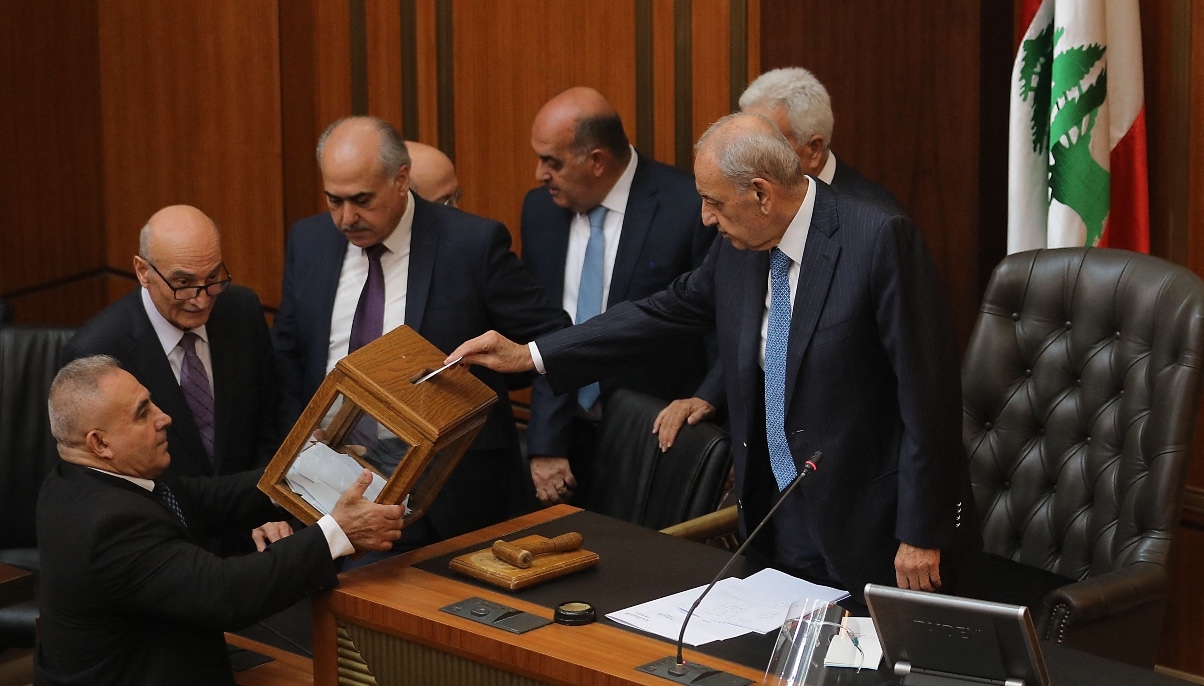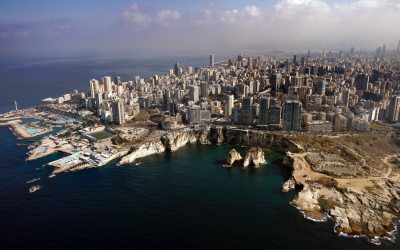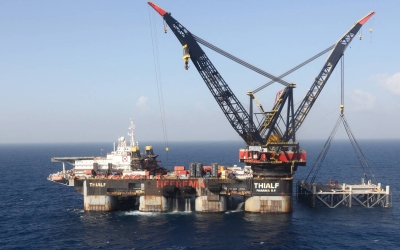Top US senators call for sanctions to pressure Lebanon to form government

Top Republican and Democratic senators have called on the Biden administration to pursue sanctions against Lebanese lawmakers for preventing the formation of a new government and financial reform in the crisis hit Mediterranean country.
“Instead of simply waiting for political movement and reforms, it is time for the Administration to implement a more forward leaning policy,” Republican Senator James Risch and Democratic Senator Robert Menendez said in a letter sent to US Secretary of State Anthony Blinken and Treasury Secretary Janet Yellen on Friday.
“We urge the Biden administration to use all available leverage, including the threat of sanctions, to ensure that Lebanese lawmakers select a new president and form a government in a timely manner and implement overdue economic reforms,” the letter, viewed by Middle East Eye, says.
Lebanon’s parliament has been unable to select a replacement for former President Michel Aoun, whose term expired in October, leaving the country with a political vacuum as it deals with what the World Bank says is one of the world’s worst financial crises in 150 years.
On Thursday, the parliament, which is divided between pro and anti-Hezbollah camps, failed for the 10th time to elect a new executive.
Although Iran-backed Hezbollah’s sway over parliament was dented in the May elections, the legislature remains divided, and Hezbollah’s allies hold the speakership.
Hezbollah, its Shia ally Amal and Christian ally the Free Patriotic Movement have repeatedly left parliament during voting to prevent the formation of a quorum needed to proceed with candidate selection.
The US lawmakers, who head the powerful Senate Foreign Relations Committee, accused Amal leader and speaker of parliament Nabih Berri of “playing procedural games with Lebanon’s future”.
Horse trading
It took more than two years for Aoun, former commander of Lebanon's army during the 1975-1990 civil war, to be selected president in 2016. Lebanon's sectarian system reserves the presidency for a Maronite Christian, the prime minister's office for a Sunni Muslim, and the speaker of parliament role for a Shia.
The warlords who emerged during the country’s civil war era continue to hold sway over Lebanon’s political system and often engage in horse trading, divvying up lucrative government positions before a compromise candidate is reached.
“We strongly urge the Administration to use its existing authorities to sanction members of Lebanon’s financial and political elite across the political and sectarian spectrum who are engaging in corruption and undermining the rule of law,” the lawmakers added.
The US has sanctioned Lebanese politicians in the past, including Gebran Bassil, son-in-law of Aoun and at the time leader of Lebanon’s biggest Christian political party.
In a June interview with Middle East Eye, Mark Daou, one of Lebanon’s newly elected reform-minded lawmakers, called on the US to sanction members of parliament over the 2020 Beirut port blast.
Complicating the formation of a new government, Lebanon’s political space has historically been a theatre of competition between regional rivals Saudi Arabia and Iran.
Michel Moawad, who is seen as close to the US, is a top contender for the presidency in the anti-Hezbollah camp and has received backing from Saudi Arabia and its Lebanese allies.
On the other side is Hezbollah-aligned politician Suleiman Frangieh, a close friend of Syrian President Bashar al-Assad.
General Joseph Aoun, head of Lebanon’s armed forces, has reportedly been discussed as a consensus candidate, with the potential support of Qatar and the US.
Middle East Eye delivers independent and unrivalled coverage and analysis of the Middle East, North Africa and beyond. To learn more about republishing this content and the associated fees, please fill out this form. More about MEE can be found here.






